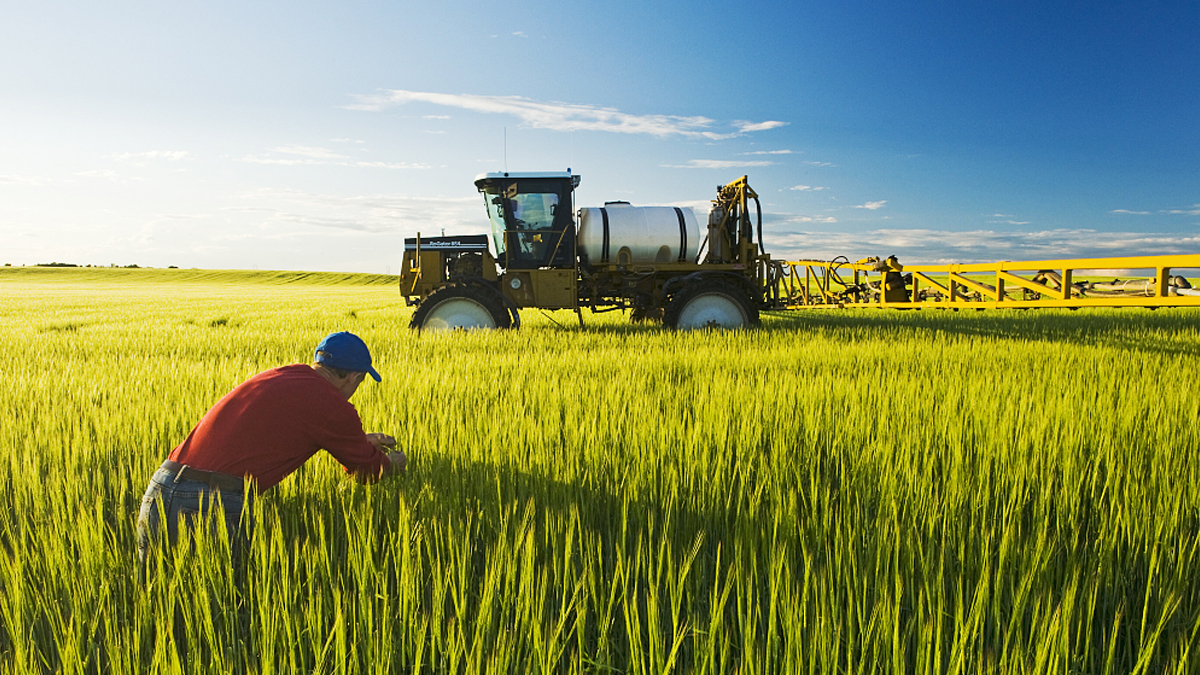Vitality Heilongjiang | 'Rich Rice' Grows on Volcanic Rocks

Shiban Tian, Shangguandi Village, Bohai Town, Ning'an City, Mudanjiang. Photo by Su Jinggang, a reporter from People's Daily Online
Chu Lijuan, the 53 year old village party branch secretary, has been dealing with Shibatan for half of her life and is a well-established "master" of rice cultivation.
Her daughter Chen Yujia has been returning to her hometown to start a business for 8 years and has become a rice expert in the eyes of her neighbors and fellow villagers.
Planting and selling, the mother and daughter became a golden partner, leading the villagers of Shangguandi Village to turn stone rice into "wealth rice".
At present, manual weeding has just ended in the rice fields. Chu Lijuan walked into the field to check the growth of the rice. "It depends on the weather for the next half month. If there is sufficient sunshine and the temperature rises, the harvest this year will be accurate," she said
Overlooking the slate fields from a high altitude, the fields are connected by square canals. Photo by Li Jiangrui
Ning'an City is known as the "hometown of volcanic rice in China", with 85000 acres of rare stone fields in the world. After the magma flowing from the volcanic eruption ten thousand years ago cooled, a large area of basalt "slate land" was formed. After ten thousand years of weathering and erosion, 10 to 30 centimeters of humus soil accumulated. The soil is soft, fertile, and rich in organic matter and minerals.
Basalt "slate ground" section. Photo by Su Jinggang, a reporter from People's Daily Online
How to grow rice on slate? Chu Lijuan led the reporter into the fields to explore the secrets. I saw that the water channel in the field was surrounded by glass, and the horizontal partition of the rice field was clearly visible. Dip your hand into the water channel and touch the bottom. The reporter felt the hard stone slab like cement.
Underneath the soil, this honeycomb shaped stone is like a lava table wall that has been around for thousands of years. It acts like an intelligent heater, absorbing heat during the day and dissipating heat at night. With high annual accumulated temperature, the maturity of rice is high, "said Chu Lijuan. This is the origin of slate rice and one of the reasons why it tastes better than ordinary rice.
Walking along the canal, fish fry shuttle through it, and the water of Jingbo Lake is irrigated by gravity for 30 kilometers.
The water flows through the gaps of the slate, making a sound, so the organic rice produced here is also called 'Xiangshui rice', "Chu Lijuan told reporters one by one. Shangguandi Village adopts traditional farming methods such as manual transplanting, ridge pushing, and harvesting according to local conditions, effectively protecting the slate fields; Persist in applying composted farmyard manure to ensure the quality of rice; Meteorological and rice field monitors have achieved quality and safety traceability; Install solar insecticidal lamps and traps, and use physical technology to reduce pests and diseases in rice fields.
The canal flows through the fields. Photo by Su Jinggang, a reporter from People's Daily Online
How to sell well if planted well? Chu Lijuan led the reporter along the wooden boardwalk towards the depths of the rice paddies and arrived at a transparent glass live streaming room with rice paddies as the background color. Here, rice sales were live streamed through an e-commerce platform.
When the reporter met Chen Yujia, she was vividly describing the rare resource advantages of the local slate fields and the unique ecological environment advantages of Jingbo Lake.
Villagers in Shangguandi Village live stream and sell rice with rice paddies as the background. Photo by Su Jinggang, a reporter from People's Daily Online
Nowadays, Chen Yujia is already the sales manager of Xuanwu Lake Rice Professional Cooperative in Ning'an City. She named herself "Rice Planting Girl" on the e-commerce platform, while 8 years ago, Chen Yujia was still a novice who couldn't distinguish between seedlings and grass.
In 2008, Chu Lijuan led the establishment of a cooperative in the village, leading the whole village to grow organic rice together. However, due to traditional sales methods, the lives of the villagers were never prosperous, and the collective economic income of the village was not satisfactory. Seeing the high-quality rice on the ground selling poorly, Chu Lijuan was extremely anxious.
For us farmers, there is no problem with farming and grain production. Selling rice is the most difficult thing. "Upon learning about the difficulties encountered in the village, Chen Yujia gave up her stable job in 2016 and resolutely returned home to lead her fellow villagers in selling rice.
At that time, a villager said, 'Look at this little girl messing around here. She won't be able to hold on for long after coming back and will have to go back to the city.' But Chen Yujia, with her perseverance, carried a rice cooker to the exhibition, explored e-commerce, and steadily built up her strength step by step. When I truly experience working in the fields, I can feel the hardship of facing the yellow soil and turning my back to the sky, and I am more confident in leading my fellow villagers forward and running forward, "said Chen Yujia.
The estate owner recognizes the cultivated land. Photo by Su Jinggang, a reporter from People's Daily Online
After years of experience and exploration, the cooperative has continued to grow and expand. Chen Yujia has also innovatively launched the "Zhuangjia's Recognition Model" - subscribing to one acre of slate fields in spring and delivering organic slate rice in autumn. This allows for a firsthand experience of planting seedlings, harvesting, and other field activities.
This is order based customized agriculture, which solves the pressure of concentrated sales in autumn and strengthens the stickiness between customers and us. This way, we push our products out and invite people in, achieving two-way cooperation, "said Chen Yujia.
Order agriculture enriches consumers' experience, expands new online sales channels, and promotes the entry of the Shibanmi brand into the national market.
Nowadays, Chen Yujia's cooperative is well-known far and wide, attracting 157 households from the village and surrounding areas to voluntarily join. The scale of organic rice cultivation in Shibatan has expanded from the initial 50 acres to 1800 acres, with an annual output of over 3 million kilograms of high-quality rice.
Chen Yujia and villagers are inspecting the growth of rice in the fields. Photo by Su Jinggang, a reporter from People's Daily Online
During a conversation with reporters, a green convertible small train carrying tourists honked its horn and headed towards the countryside. Combining with the construction of the local rice culture theme park, Shangguandi Village has organically integrated field experience tours, historical and cultural tours, study base tours, and characteristic homestay tours into a package of tourism products, extending the slate rice industry chain and enhancing the added value of the slate rice industry.
The small train carries tourists to explore the rural scenery. Photo by Su Jinggang, a reporter from People's Daily Online
Shangguandi Village is gradually changing its old appearance. The village's appearance is rejuvenated with white walls and green walls, and the newly built scenic boardwalk around the lake is a harmonious coexistence of ancient and new charm. The countryside is transformed, and life is more beautiful.
The stone rice grains are plump. Photo by Su Jinggang, a reporter from People's Daily Online
As the sun sets in the west, smoke rises from the farmhouse courtyard, cooking farmhouse dishes and stone rice for wave after wave of tourists, welcoming and sending them back and forth, creating a lively atmosphere. This month, Heilongjiang Tourism Investment Group Co., Ltd. signed an agreement with Shangguandi Village to undertake cultural and tourism projects in the village and build a rural tourism brand. The village collective has become wealthy, and the wallets of the villagers have swelled.
Shangguandi Village has a clean and tidy appearance with white walls and blue tiles. Photo by Li Xiangrui
After the agricultural break, villager Liu Jinlong helped out at the farmhouse. "Our good rice has sold at a good price, and tourism has also developed. We work harder and get more, and our lives are more promising," he said



